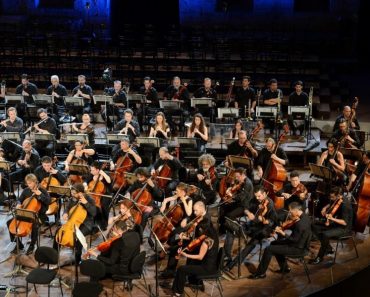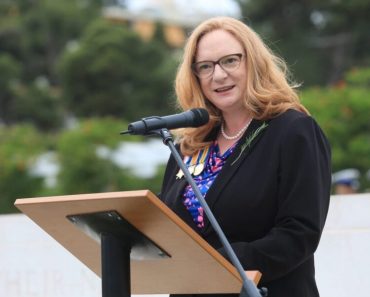The tuition fees for Stelios’s musical studies, who was recently recognized among the top 100 talents worldwide for 2025 through the Global Child Prodigy Awards, have been covered by shipowner Giannis Koutsas — following a recommendation from Anna Vissi.
The school’s history
The Purcell School is the oldest specialized music school in the UK. Located in the suburbs of London, in Bushey, Hertfordshire, it functions as both a boarding school and a day school for nearly 200 young people with musical talent, all striving to maximize their abilities.
The school’s goal is to provide talented young individuals with the best possible teaching and a suitable environment to develop their talent, regardless of their background, offering world-class music education.
What is “The Purcell School,” the world’s top music school that 12-year-old soloist Stelios Kerasidis will attend
Alongside ideal opportunities for practice, performance, and musical development, Purcell offers a balanced academic education, preparing students for a lifelong career in music.
At the same time, as part of its mission, the school aims to cultivate confidence, adaptability, and maturity in its students, ensuring their personal and professional growth throughout their lives.
Since 1985, the school has been under the Protection of King Charles III — then Prince of Wales. He officially inaugurated its new facilities and accepted on behalf of Purcell the UNESCO Gold Medal for Mozart for its outstanding contribution to Artistic Education.
The school’s journey through time
Rosemary Rapaport and Irene Forster founded the school in 1962 at Conway Hall in central London, initially called the Central Residential School for Young Musicians. It later moved to Morley College, then to Hampstead, and subsequently to a large Victorian house in Harrow on the Hill.
As it continued to grow, the school changed its name in 1973 to The Purcell School, in honor of the English composer Henry Purcell. In 1997, it relocated to the premises of the former Royal Caledonian School in Bushey, Hertfordshire, where it remains today.
Over 50 years later, it is considered a national treasure, providing excellent musical education in a creative and supportive environment for students from around the world.
Music Departments
Students’ musical lives are supported by their department head, who works closely with each student and their instrument teacher to create a personalized curriculum. Academic knowledge in music — including ear training, theory, harmony, composition, history, and analysis — supports instrumental studies and forms a core part of a holistic educational approach.
The specialized teachers, many of whom also teach in London’s music schools, have extensive experience guiding talented young musicians. Additionally, supervised practice tutors, who are graduate musicians, support the students.
Regular masterclasses, recitals, seminars, and collaborations with distinguished musicians enrich students’ education and give them valuable exposure to the broader musical world.
The enriched musical program includes chamber music, orchestral participation, choirs, jazz, and piano recitals. Performance opportunities are frequent and varied — from daily lunchtime concerts at school to official recitals at top venues in London such as the Royal Festival Hall, Cadogan Hall, Wigmore Hall, and Milton Court Concert Hall.
The Musical Centre offers excellent facilities: a state-of-the-art recording studio, recital hall, composition rooms with computers, and specially designed teaching and practice rooms.
Each department maintains close relationships with music colleges and conservatories across the country, with excellent acceptance and scholarship results. Students often win significant and highly competitive awards.
The combination of Purcell’s characteristics is considered unique: respect for individuality, high educational standards, emphasis on systematic practice, and opportunities to perform chamber music and in orchestras at the highest level.
After Purcell
Having received outstanding musical and strong academic training, most alumni continue to excel in their chosen fields. The school places particular emphasis on guiding and supporting their decisions, helping them make conscious choices for their future.

Most study music at top London music colleges, often with scholarships. Others choose leading universities like Oxford and Cambridge, mainly for Music studies, though some follow different paths such as Physics, Aerospace Engineering, English Literature, or History.
Alumni of Purcell are active in major orchestras in the UK and abroad, as well as in top ensembles. Notable graduates include Martin James Bartlett (BBC Young Musician of the Year 2014), royal harpist Anne Denholm, Grammy-winning jazz pianist Jacob Collier, and Oscar- and BAFTA-nominated film composer Mica Levi.
Tuition fees
The philosophy of Purcell School is to minimize financial barriers to music education through scholarships based on family income — via the UK’s Music and Dance Scheme (MDS) for residents of the UK, and the School’s Scholarship Fund for international students.
Specifically, the annual fees for boarding students at Purcell are £43,479 plus VAT, paid quarterly at £14,493 plus VAT.
For day students, the annual fee is £34,053 plus VAT, paid quarterly at £11,351 plus VAT.
Music and Dance Scheme (MDS)
The vast majority of British students (about 80%) pay reduced or no fees, thanks to the UK Department for Education’s Music and Dance Scheme (MDS), which is income-based.
To be eligible for MDS, a student must have resided in the UK for at least two years before January 1 of the academic year for which they apply. If the gross annual family income is below £15,000, parents pay nothing. There is a sliding scale of contributions based on income. The school has a limited number of MDS places, allocated after auditions. Participation in MDS is reviewed annually.
Ask me anything
Explore related questions




